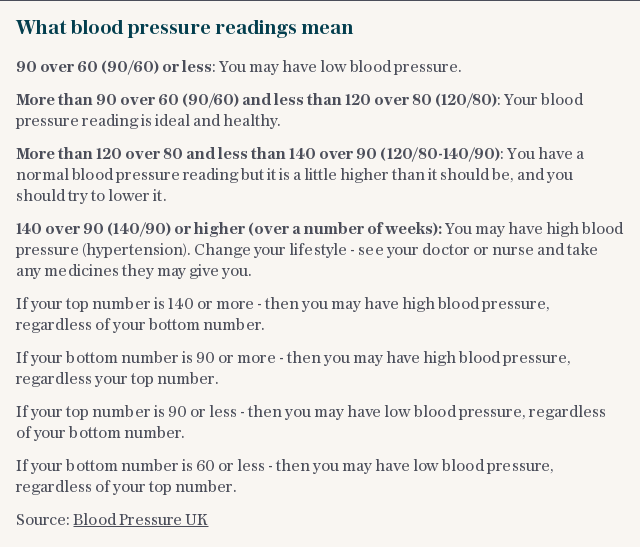'White coat syndrome' is real: blood pressure readings at home 50 per cent more accurate

White coat syndrome is real, confirms a new study, showing blood pressure measurements taken by a doctor are 50 per cent less accurate than those taken at home.
The research confirms theories that readings taken in a doctors’ surgery bear little relation to the true state of heart health.
Experts have long surmised that anxiety in medical settings could cause a spike in blood pressure, meaning cases will be overdiagnosed.
The new study which tracked 63,000 patients for 10 years, tested their blood pressure first at a medical clinic, before giving patients pocket-sized devices to take home, checking levels for the next 24 hours.
The research found that the measurements taken at home were a far better predictor of mortality rates from heart disease than the reading from the clinic.
Around 10.4 per cent of cases experienced a spike in blood pressure rocket in front of their GP – yet readings were normal at home. Meanwhile, 3.6 per cent were told their levels were within a healthy range - only for 24-hour monitoring to show otherwise.
The accuracy of each measure was assessed by comparing it with death rates over the subsequent decade.
The research, the largest ever cohort study of its kind, is published in the New England Journal for Medicine.
Author Professor Bryan Williams, from University College London Institute of Cardiovascular Sciences, said the study was a “game-changer” and showed the need for surgeries to offer more self-testing at home.
“For decades doctors have known that blood pressure measured ‘in-clinic’ could be masked or elevated, simply because the patient was in a medical setting, and this could lead to the wrong or a missed diagnosis,” he said.
High blood pressure is the leading preventable cause of death globally.
Around 12 million patients in the UK have the condition, which is the biggest cause of heart disease and stroke.

Prof Williams said: “This research is a clear game-changer, as for the first time, it definitively shows that blood pressure measured regularly during a 24 hour period predicts the risk of heart disease, stroke and death much better than blood pressure measured in a doctor’s surgery or clinic.
“Quite simply, measuring blood pressure over 24 hours is what doctors and medics should be using to make clinical decisions about treatment.
“With a much more accurate assessment of a patient’s blood pressure, doctors will be able to provide the most effective treatments at the earliest opportunity, which will save many more lives.”
Earlier this week, Australian medics suggested US proposals to redefine blood pressure - meaning patients could be diagnosed at levels currently considered healthy - could backfire.
Researchers from the University of Sydney said that a diagnosis could itself increase anxiety, which can cause spikes in blood pressure.
Prof Anna Dominiczak, Regius Professor of Medicine, Vice Principal and Head of College, University of Glasgow, said: “This is a good quality study on a large number of patients and the conclusions are based on solid data. It shows that in the Ambulatory Blood Pressure Monitoring (ABPM) over 24 hrs is a better predictor of cardiovascular mortality as compared with clinic blood pressure measurements.
“This is in line with previous small studies and confirms previous observations but with a larger numbers of patients and thus stronger evidence. The data on masked hypertension and white coat hypertension are particularly important," she said.
She highlighted the fact the study was observational.

 Yahoo News
Yahoo News 
